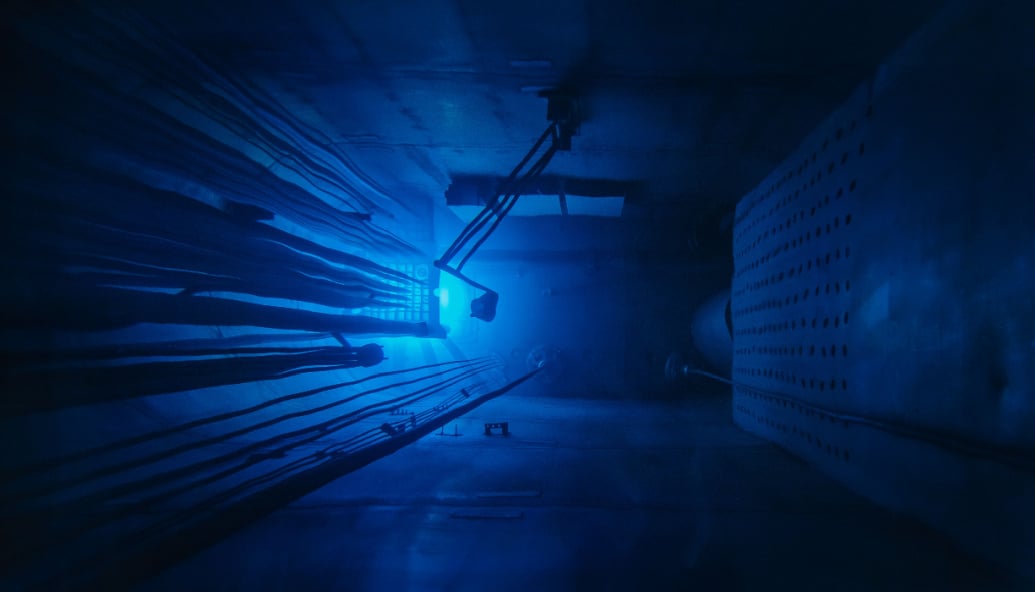Britain’s new nuclear age has begun.
The government is overhauling planning rules to fast-track the construction of nuclear power plants across England and Wales, aiming to secure clean, homegrown energy and drive economic growth.
New reforms will remove restrictions on where nuclear plants can be built, clearing the way for small modular reactors (SMRs) to be deployed nationwide for the first time. The move is designed to attract investment, slash planning delays and ensure the UK is no longer held back by outdated regulations.
More nuclear, faster
For years, nuclear development has been restricted to just eight designated sites, including Hinkley Point and Sizewell. The government is now scrapping this list, allowing nuclear plants to be built wherever they are needed most.
SMRs, which are cheaper and quicker to construct than traditional reactors, will be included in planning rules for the first time, enabling them to co-locate with energy-intensive industries such as AI data centres. Developers will be encouraged to bring forward new sites at the pre-application stage, cutting overall timelines and streamlining the approval process.
To avoid further delays, the expiry date on nuclear planning rules will be removed, allowing long-term projects to proceed without being timed out by bureaucratic hurdles.
This country hasn’t built a nuclear power station in decades. We’ve been let down, and left behind.
Our energy security has been hostage to Putin for too long, with British prices skyrocketing at his whims.
I’m putting an end to it – changing the rules to back the builders of this nation and saying no to the blockers who have strangled our chances of cheaper energy, growth and jobs for far too long.
My government was elected to deliver change. I’ll take the radical decisions needed to wrestle Britain from its status quo slumber, to turbocharge our plan for change.”
Prime Minister Kier Starmer
Cutting high cost of UK nuclear
The UK is one of the most expensive places in the world to build nuclear power stations, with excessive regulations driving up costs. Hinkley Point C, the only nuclear project currently under construction, has seen its price tag balloon to £46 billion, partly due to complex planning requirements.
Under the new plan, the government will establish a nuclear regulatory taskforce to cut unnecessary red tape and speed up approvals for new reactor designs. The taskforce will also look at better aligning UK regulations with international standards, ensuring reactors approved abroad can be greenlit more quickly.
The system will be overhauled to reduce duplication and simplify interactions between multiple regulators, helping developers get projects off the ground without years of costly legal battles.
Safety will still be prioritised
Despite the regulatory shake-up, the government insists strict nuclear safety standards will remain in place. There will still be clear restrictions on building reactors near densely populated areas and military sites, and all projects will be subject to high environmental standards and community engagement.
The UK’s rigorous safety measures, including reactor designs built to withstand direct aircraft impact, will continue to be a core part of the approval process. The changes are aimed at making the system faster and more efficient without compromising security.
Ending decades of delay
The UK was the first country in the world to develop a nuclear reactor, but no new plants have been completed since 1995. Meanwhile, China is building 29 reactors, and the EU has 12 more in the pipeline, leaving the UK far behind in the global race to secure clean energy.
For too long, planning delays and legal challenges have stalled nuclear projects, pushing up costs and undermining investor confidence. The new reforms will put an end to this by streamlining planning laws, cutting legal red tape and making it easier for developers to get on with building reactors that will power Britain for generations to come.
We need to make Britain the best possible place to build new nuclear, both large-scale and SMRs, which means avoiding unnecessary stumbling blocks and ensuring regulations are proportionate to our urgent need for low carbon power, energy security and good jobs.”
Tom Greatrex, Nuclear Industry Association
Energy independence and economic growth
The push for nuclear is part of a wider government strategy to reduce the UK’s dependence on fossil fuels and protect consumers from global energy price shocks. In a volatile world where oil and gas markets are dominated by geopolitical instability, nuclear is seen as a vital way to secure the country’s long-term energy future.
The great British nuclear programme is already moving forward with a SMR competition, and contract negotiations are underway to accelerate deployment. Further funding for Sizewell C was committed in the autumn budget 2024, reinforcing the government’s commitment to nuclear expansion.
This latest overhaul marks a major step forward in making nuclear energy a core part of Britain’s clean power future.
With red tape ripped up and investment unlocked, is the UK is finally on course to build the nuclear infrastructure it needs to deliver secure, affordable and low-carbon energy for decades to come?
Copyright © 2025 Energy Live News LtdELN

